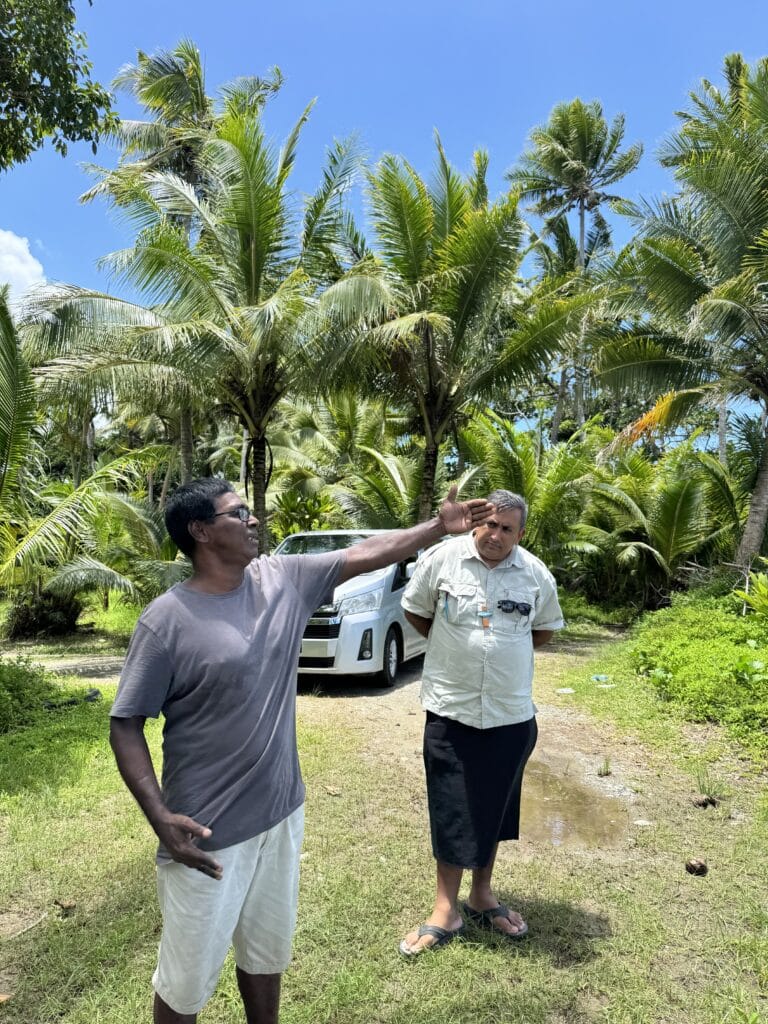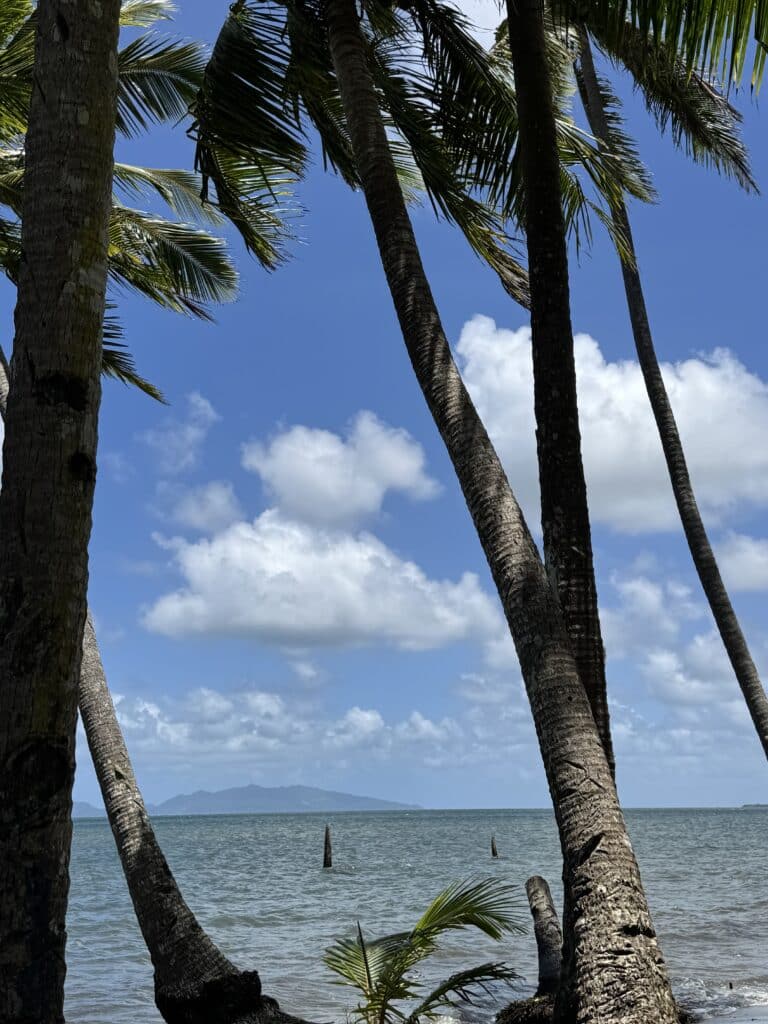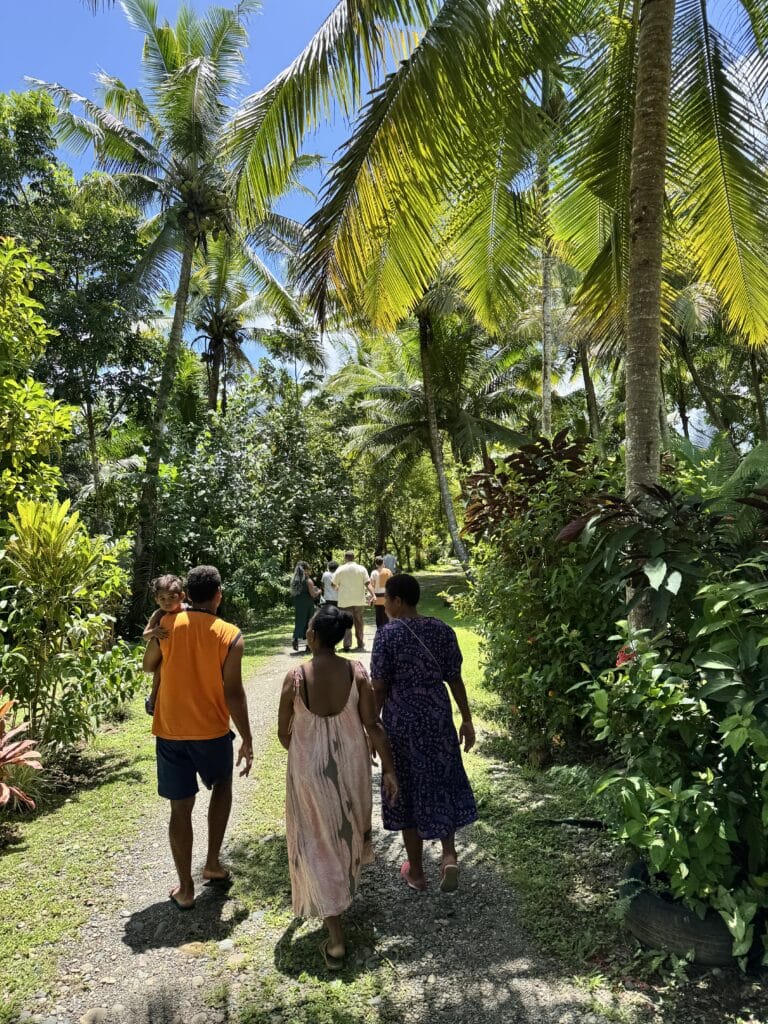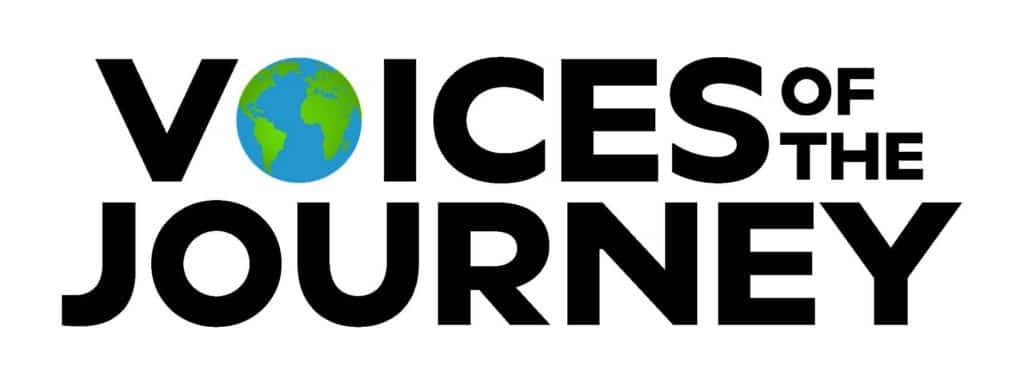Togoru, Fiji
Getting Personal with Climate Change
He looks out at the sea that has been his family’s source of livelihood and constant joy for generations. His eyes tear up as he contemplates what is unthinkable for him, the prospect of having to leave this place he so dearly loves.

His name is Bani Dunn. He is the 5th generation of the Dunn family that has lived here in the village of Togoru, nestled on the south coast of Fiji’s largest island. He and his wife (who he introduced simply as his “best friend”) have raised their three children here, relying on the bounty of fish from these waters for their income. But now those waters that have so blessed them and generations before them are equally a threat. Year by year they measurably rise, literally consuming the village. This is the undeniable, human cost of climate change, a daily and harsh reality for Togoru and the Dunn family.
As we stand with Mr. Dunn and his family gazing out at the ocean, we see two cement pillars jutting out of the waters a fair distance out. These are tombstones at the graves of Mr. Dunn’s descendants, the only two that can still be partially seen above the ebb and flow of the waves. Mr. Dunn remembers playing as a child on land that previously extended far beyond the cemetery. But now that’s all gone, submerged by rising sea levels.
Scientists from around the world have been to Togoru and have monitored the effects of climate change here. They’ve told the Dunn family that each year the waters creep another 1.3-1.5 metres further onto their land. That’s nearly five feet annually. Mr. Dunn says 6 hectares (roughly 2.5 acres) of Togoru have so far been lost. The fishing has changed over the years too. He remembers casting out his nets as a younger man and bringing them back in bursting with fish. But now increasing pollution, the changes tides, and the impacts of commercial fishing have changed all that. Their nets no longer teem with fish.

Togoru is one of 65 villages the Fijian government has identified as threatened by climate change. Over the last 10 years five such communities have been relocated. 17 others are currently on the government’s “urgent” list. Togoru is one of those deemed urgent.
Even with all the worry and hardship Mr. Dunn and his family are enduring in Togoru, he doesn’t want to relocate. His children don’t want to leave either. It would mean going somewhere owned by someone else, to a place that isn’t really theirs. They’d be moved far inland, of course, and what would a fisherman know about making a living away from the sea? This place, this land and these waters, are sacred to Bani. They hold precious history, cultural meaning, for him and his family. This land of theirs is literally disappearing year by year, but it’s still the only home they’ve ever known. They can’t imagine being anywhere else.
Later, we walk with Bani and his family to their houses. They show us with pride the solar electricity and new solar energy-powered freezer that was recently installed thanks to the Pacific Conference of Churches, a Global Ministries partner.* The solar power is the only available utility in the village. The freezer allows the family to keep fish longer, for sale or their own consumption, and to earn income by renting out freezer space to others.

We share a prayer together, exchange hugs, and offer brief words of blessing. Then we walk back along a muddy path, the beauty of this place apparent all around us in bright splashes of color and lush vegetation. “Vinaka”, we say as we go. “Thank you” for sharing your village and your story with us. Thank you for reminding us that the costs of climate change are personal, borne by precious communities and the families who call those communities home.
Togoru. Bani Dunn. We will remember.
*The Pacific Conference of Churches is a Global Ministries partner that has 27 member churches in 17 island states and territories. One of their priorities is migration, specifically migration caused by climate change. Gifts from Global Ministries to the Pacific Conference of Churches have been utilized in part to support needs of the village and people of Togoru.
The Reverend Shari Prestemon began her service with the national ministries of the United Church of Christ in January 2024. As the Acting Associate General Minister & Co-Executive for Global Ministries she has the privilege of supporting several teams: Global Ministries, Global H.O.P.E., Public Policy & Advocacy Team (Washington, D.C.), our staff liaison at the United Nations, and our Gender & Sexuality Justice Team. She previously served as a local church pastor in Illinois and Wisconsin, the Executive Director at Back Bay Mission in Biloxi, Mississippi, and the Minnesota Conference Minister. Her call to ministry grew, in part, from early Global Ministries experiences, especially service as a Peace & Justice Intern in Dumaguete City, the Philippines.
Related News
5 Rules for Healthy Global Partnerships (and Allies)
Around the same time I was returning from two weeks of Global Ministries visits with...
Read MoreTogoru, Fiji
Getting Personal with Climate Change He looks out at the sea that has been his family’s...
Read MoreHopelessness Is Submission
“Now hope that is seen is not hope, for who hopes for what one already sees? But if we hope...
Read More
